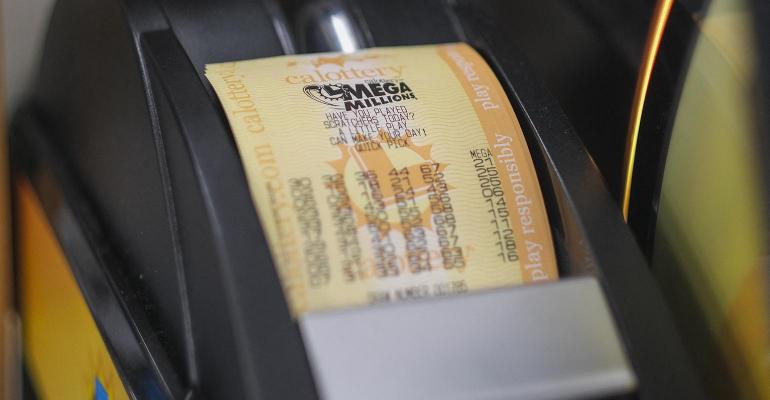(Bloomberg) -- Friday night’s drawing for the Mega Millions jackpot has swelled to an astounding $1.1 billion, which would be the second highest prize in the lottery’s history, bested only by a winning ticket for $1.54 billion in 2018.
The lucky jackpot winner will have to correctly pick six numbers — five white balls from 1 to 70 and the yellow “mega ball” from 1 to 25. While the rules of play are easy enough, the chances of taking home the top prize are not: the odds of winning are 1 in 303 million. You’re more likely to be eaten by a shark, according to sports-betting site Bookies.com.
Laying claim to the Mega Millions jackpot won’t make the winner an overnight billionaire.
Winners have two options: They can claim their jackpot as a lump sum immediately, which slashes their prize to $648.2 million. Or they can receive the full amount in annual payments spread out over the course of 30 years, with each payment 5% bigger than the previous one. Both options are subject to taxes, of course.
The $1.1 billion jackpot payout will be taxed as ordinary income, according to Tom O’Saben, a director at the National Association of Tax Professionals. A single winner would most certainly hit the maximum federal tax rate of 37%, bringing down the prize to about $408 million.
The take-home prize money will depend on where you live, as the earnings are subject to the winner’s state and local tax rate. Mega Millions tickets — which cost $2 each — are sold in 45 states plus the District of Columbia and the U.S. Virgin Islands.
When you tack on state and local taxes, which can range as high as 13% or above in jurisdictions like California, O’Saben said the jackpot winner could give up about half their winnings, taking home just a third of the $1 billion jackpot.
“The Mega Millions winner will not be a billionaire. But even after taxes, it will make you a millionaire,” said O’Saben.
For anyone who experiences a financial windfall from the lottery, O’Saben advises seeking out legal and financial advice before they receive the money. Winners should carefully consider their own longevity and future tax rates when deciding between accepting a lump-sum cash prize or the annuity prize option.
“How you accept payment depends on the desires of the winner,” he said. “Sit down with an attorney and financial advisor because there are both tax and non-tax factors to consider.”
To contact the author of this story:
Paulina Cachero in New York at [email protected]

